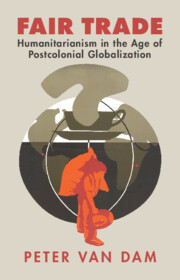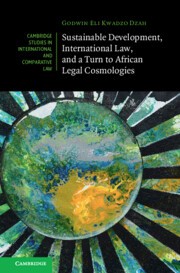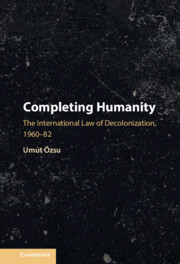Refine search
Actions for selected content:
57 results
5 - International Archival (B)Orders
- from Part II - Struggle to Reveal
-
- Book:
- Curating the Colonial Past
- Published online:
- 12 September 2025
- Print publication:
- 02 October 2025, pp 167-199
-
- Chapter
- Export citation
Palestine Magazines and Co-Created Solidarity in Scandinavia
- Part of
-
- Journal:
- Public Humanities / Volume 1 / 2025
- Published online by Cambridge University Press:
- 29 September 2025, e140
-
- Article
-
- You have access
- Open access
- HTML
- Export citation
The (third) world of yesterday: Global anti-colonial struggles, Palestinian consciousness, and Zionist-colonial alliances
-
- Journal:
- Journal of Global History / Volume 20 / Issue 3 / November 2025
- Published online by Cambridge University Press:
- 03 June 2025, pp. 293-312
-
- Article
-
- You have access
- Open access
- HTML
- Export citation
Introduction
-
- Book:
- Fair Trade
- Published online:
- 01 May 2025
- Print publication:
- 15 May 2025, pp 1-18
-
- Chapter
- Export citation
2 - Sugar
-
- Book:
- Fair Trade
- Published online:
- 01 May 2025
- Print publication:
- 15 May 2025, pp 43-68
-
- Chapter
- Export citation
2 - The Limits of Superpower
-
-
- Book:
- Coups d'État in Cold War Latin America, 1964–1982
- Published online:
- 24 April 2025
- Print publication:
- 08 May 2025, pp 47-67
-
- Chapter
- Export citation

Fair Trade
- Humanitarianism in the Age of Postcolonial Globalization
-
- Published online:
- 01 May 2025
- Print publication:
- 15 May 2025
6 - Epilogue
-
- Book:
- The Nehru Years
- Published online:
- 29 April 2025
- Print publication:
- 10 April 2025, pp 177-181
-
- Chapter
- Export citation
The Mutual Gaze of Okinawans and Zainichi Koreans in Post-War Japan: From 1945 to the 1972 Okinawa Reversion
-
- Journal:
- Asia-Pacific Journal / Volume 17 / Issue 8 / April 2019
- Published online by Cambridge University Press:
- 14 March 2025, e4
-
- Article
-
- You have access
- Open access
- Export citation
14 - The Third World and the Communist Triumph in Vietnam
- from Part II - The Postwar Era
-
-
- Book:
- The Cambridge History of the Vietnam War
- Published online:
- 02 January 2025
- Print publication:
- 28 November 2024, pp 313-332
-
- Chapter
- Export citation
24 - International Radicalism and Antiwar Protest
- from Part III - Global Vietnam
-
-
- Book:
- The Cambridge History of the Vietnam War
- Published online:
- 02 January 2025
- Print publication:
- 28 November 2024, pp 509-528
-
- Chapter
- Export citation
Chapter 17 - Liberating Third World Theatre
-
-
- Book:
- A New History of Theatre in France
- Published online:
- 22 October 2024
- Print publication:
- 21 November 2024, pp 329-346
-
- Chapter
- Export citation
5 - Love Us as We Are
- from Part II - Hubris
-
- Book:
- To Run the World
- Published online:
- 30 May 2024
- Print publication:
- 30 May 2024, pp 145-170
-
- Chapter
- Export citation

Sustainable Development, International Law, and a Turn to African Legal Cosmologies
-
- Published online:
- 16 May 2024
- Print publication:
- 23 May 2024
Against Latin American Regionalisms: The 1927 Brussels Congress and the Anti-Imperialist League of the Americas
- Part of
-
- Journal:
- Latin American Research Review / Volume 59 / Issue 2 / June 2024
- Published online by Cambridge University Press:
- 07 March 2024, pp. 341-360
-
- Article
-
- You have access
- Open access
- HTML
- Export citation

Completing Humanity
- The International Law of Decolonization, 1960–82
-
- Published online:
- 16 January 2024
- Print publication:
- 21 December 2023
Conclusion
-
- Book:
- Persianate Verse and the Poetics of Eastern Internationalism
- Published online:
- 14 December 2023
- Print publication:
- 21 December 2023, pp 197-202
-
- Chapter
- Export citation
Chapter 11 - “Through a Narrow Glass”: Compassion, Power, and Lyndon Johnson’s Struggle to Make Sense of the Third World
-
-
- Book:
- LBJ's America
- Published online:
- 19 October 2023
- Print publication:
- 19 October 2023, pp 281-302
-
- Chapter
- Export citation
12 - Was the Rise of the ‘Third World’ a Theory Effect?
- from Part III - Global History and the Imperial Fundaments of International Politics
-
-
- Book:
- The Historicity of International Politics
- Published online:
- 29 June 2023
- Print publication:
- 13 July 2023, pp 247-266
-
- Chapter
- Export citation
1 - North Korea and the Cuban Revolution, 1959–1965
-
- Book:
- North Korea, Tricontinentalism, and the Latin American Revolution, 1959–1970
- Published online:
- 18 May 2023
- Print publication:
- 01 June 2023, pp 18-49
-
- Chapter
- Export citation
